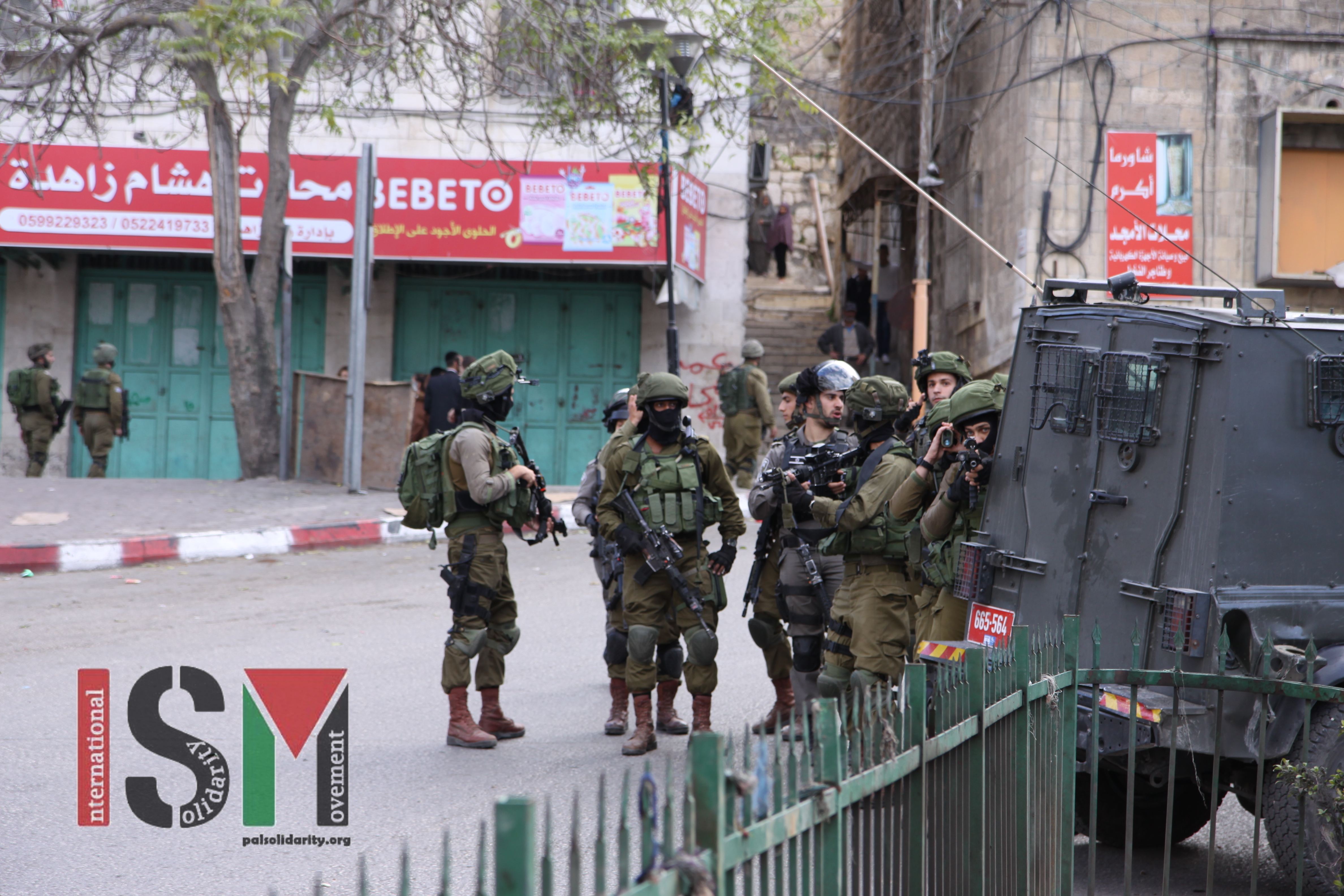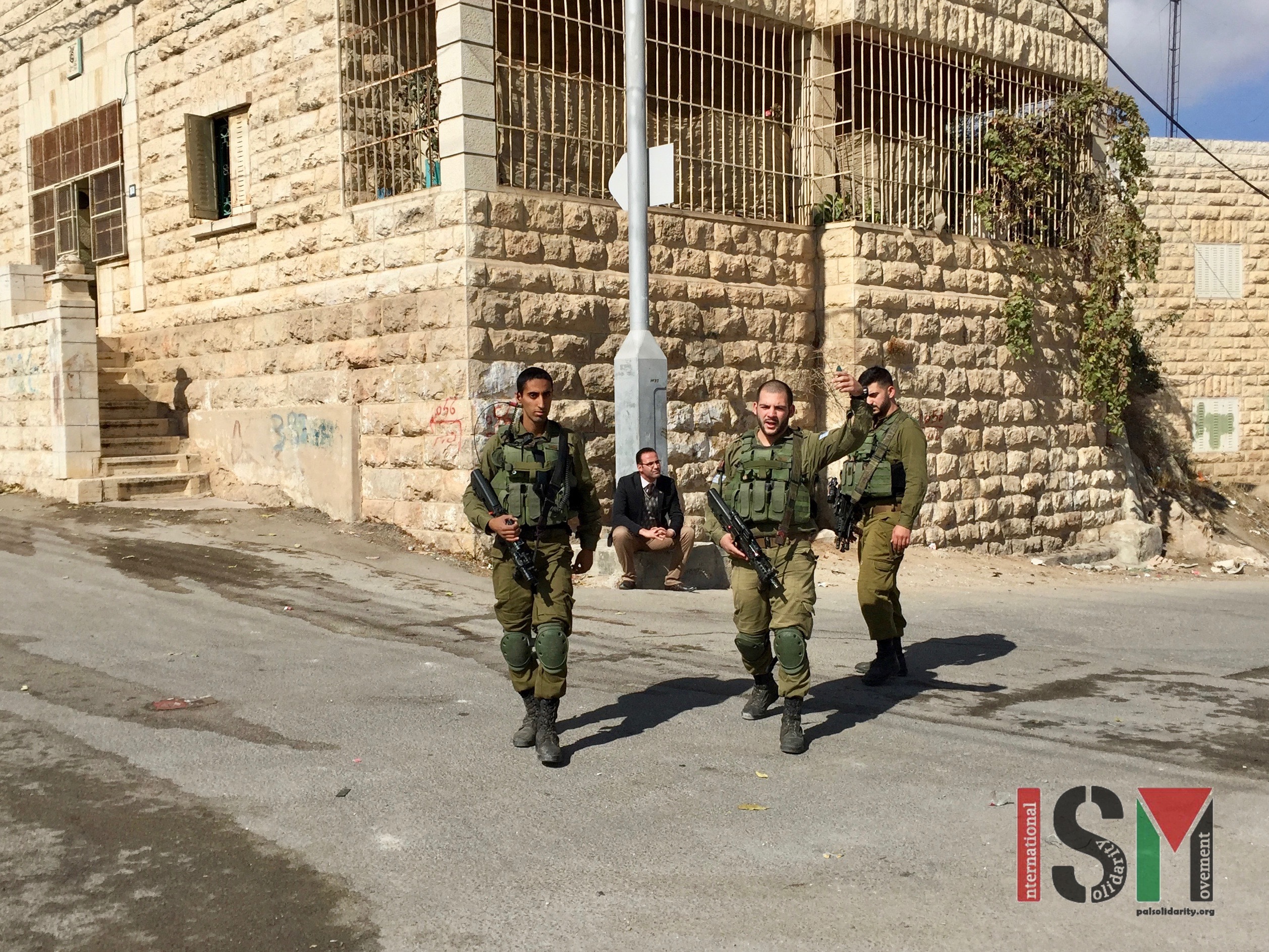Tag: Hebron
-
‘Feast of Sarah’ Holiday Draws Thousands of Settlers to Al-Khalil
12th November 2017 | International Solidarity Movement, al-Khalil team | al-Khalil, Occupied Palestine The Feast of Sarah did not pass unnoticed for the Palestinian residents of al-Khalil (Hebron). Jewish worshippers had been arriving from Israel in large numbers for days prior, together with a consequent increase of military presence. Yesterday morning, at 9:00 AM, soldiers…
-
Settler holidays violently disrupting Palestinian every day life
10th November 2017 | International Solidarity Movement, al-Khalil team | Hebron, Occupied Palestine Yesterday in the Palestinian city Al-Khalil(Hebron) there was a large military presence in the area due to the coming Jewish holiday, The feast of Sarah. Solders from the Israeli military detained Palestinians, prevented children from getting to their schools, and shot rounds…
-
Remembering Balfour under Apartheid
6th November 2017 | International Solidarity Movement, al-Khalil team | Hebron, Occupied Palestine Yesterday in al Khalil (Hebron) the Palestinian group Youth Against Settlements held an event to mark the 100th years anniversary of The Balfour Declaration. The Balfour Declaration is viewed as a foundational document of the Israeli states ethnic cleansing of Palestine. Despite…



